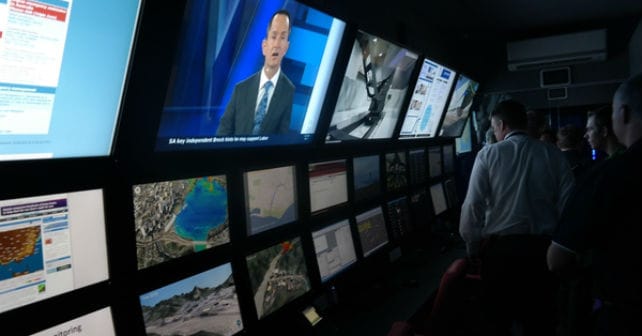Article: Sustainability in ICT
Providing direction for a sustainable ICT future
By Graham Palmer, Chair of the Intellect Energy and Environment Group and UK and Ireland Country Manager for Intel Corporation
 In a world beset with overconsumption, environmental degradation, global warming, growing resource scarcity, and social change, humanity is facing its greatest challenge ever. Doing more with less is vitally important if we are to responsibly manage our finite resources and continue to grow our economies.
In a world beset with overconsumption, environmental degradation, global warming, growing resource scarcity, and social change, humanity is facing its greatest challenge ever. Doing more with less is vitally important if we are to responsibly manage our finite resources and continue to grow our economies.
With environmental challenges facing all of us, now is the time for governments, business, industry, environmental organisations, and individuals to join together in solutions to create a sustainable world for this generation and those that follow.
As a fast-paced industry itself, Information and Communication Technology (ICT) has a role to play in tackling these global challenges head on and we must take communal responsibility for their resolution. The need to adopt a holistic approach is required, to encompass everything from development and production to policy and recycling. It is for this reason that the Energy and Environment Group was formed within Intellect, to provide leadership and drive innovation throughout the ICT industry.
Fortunately, the ICT sector is accustomed to moving rapidly. This makes our industry well poised to swiftly contribute to the development of a wide range of solutions to reducing global warming and improving energy efficiency, as well as empowering sustainable economic growth, productivity and job creation.
The UK Intellect Energy and Environment Group recently published a report to drive ICT contribution to sustainability. It highlights four principle areas of development, namely:
1. To understand where we are today through effective measuring and monitoring and further research into the impact of ICT on climate change
2. The need for a reduced carbon footprint created by the global and UK ICT industry. This includes adopting changes at the global, corporate and product level, for example optimising companies’ supply chains
3. Continued innovation in the development of technology solutions to improve energy efficiency
4. The need to educate consumers on behavioural changes that could benefit climate change through better ICT use
Corporate responsibility begins at home
The place to start tackling these problems is close to home.
The members of the Energy and Environment Group are organisations concerned with the impact that ICT has on climate change. As a group we are committed to driving the efforts of individual organisations to reduce carbon footprint and promote innovation in more energy efficient ICT, and make it a national and industry-wide movement.
My own organisation, Intel has a publicly stated goal to reduce its energy consumption by more than 30 percent by 2010 while driving innovation in our products to deliver increasing performance and reduced energy consumption to all our customers. As such, last year we announced a number of initiatives including the formation of the Climate Savers Computing Initiative in conjunction with WWF and Google, to help promote these changes. Other members of the group have similarly stated goals, but more importantly we all realise that doing these things alone is not enough. We must allow others to take advantage of our experiences, provide advice on the improvements we have found and work together to drive the creation of new innovations more rapidly.
From words to action
Of course one report is not going to change the way the industry behaves but it does provide a statement of intent. We need to turn these four areas of development into concerted action, and we have already begun, working with Warwick University to further research in the area. It is incumbent on all of us to take action, however, now is the time to work together, as a community.




